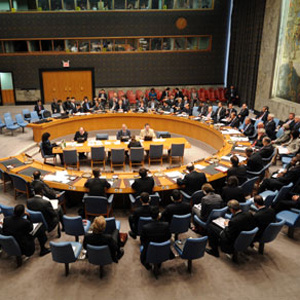UN Restructuring and Ahmadinejad’s Remarks

There were no veto powers in the League of Nations’ Security Council, and all members enjoyed equal rights. Nevertheless, the lack of a dominant power that could establish order and prevent chaos ultimately turned into one of the basic reasons for the disappointing record of the League of Nations. Regarding this flaw, the UN founders defined such an advantage in the form of a veto power. Countries possessing this right would provide an actual guarantee for the enforcement of UN directives.
Debates over such critical issues took long to fade away. Even ten years after the establishment of the UN, there were still calls for the introduction of new permanent members to the Security Council. Official debates about this issue, however, started in 2000, when Kofi Annan designated a body of advisors to come up with suggestions for necessary reforms in the UN, especially those related to UN Security Council restructuring. Findings of this advisory board -embodied in Plan A and Plan B- were delivered to UN General Assembly. In both proposals, an increase of UNSC permanent members to 24 was suggested. According to Plan A, countries such as India, Japan and Brazil would be granted permanent membership without enjoying the right of veto. Another suggestion of the advisory committee was a region-based allocation of membership.
Although on the agenda for five years (2000-2005), UNSC restructuring plans failed to gain support since they lacked a basic requirement, namely support from five UNSC permanent members. The most likely scenario for reforms in the Security Council is the admission of new permanent members without giving them the right of veto.
As we know, Ahmadinejad’s demands were voiced before. Nonetheless, considering every country’s right to express its stance at the UN General Assembly, the Iranian president has the right to state his opinion about UN restructuring. Iran made similar demands during Khatami’s presidency. However, Iran should forget about trying to abolish the right of veto. No powerful country would willing to cede such a powerful tool.
* Yousef Moulayi is professor of international law in Tehran University.

